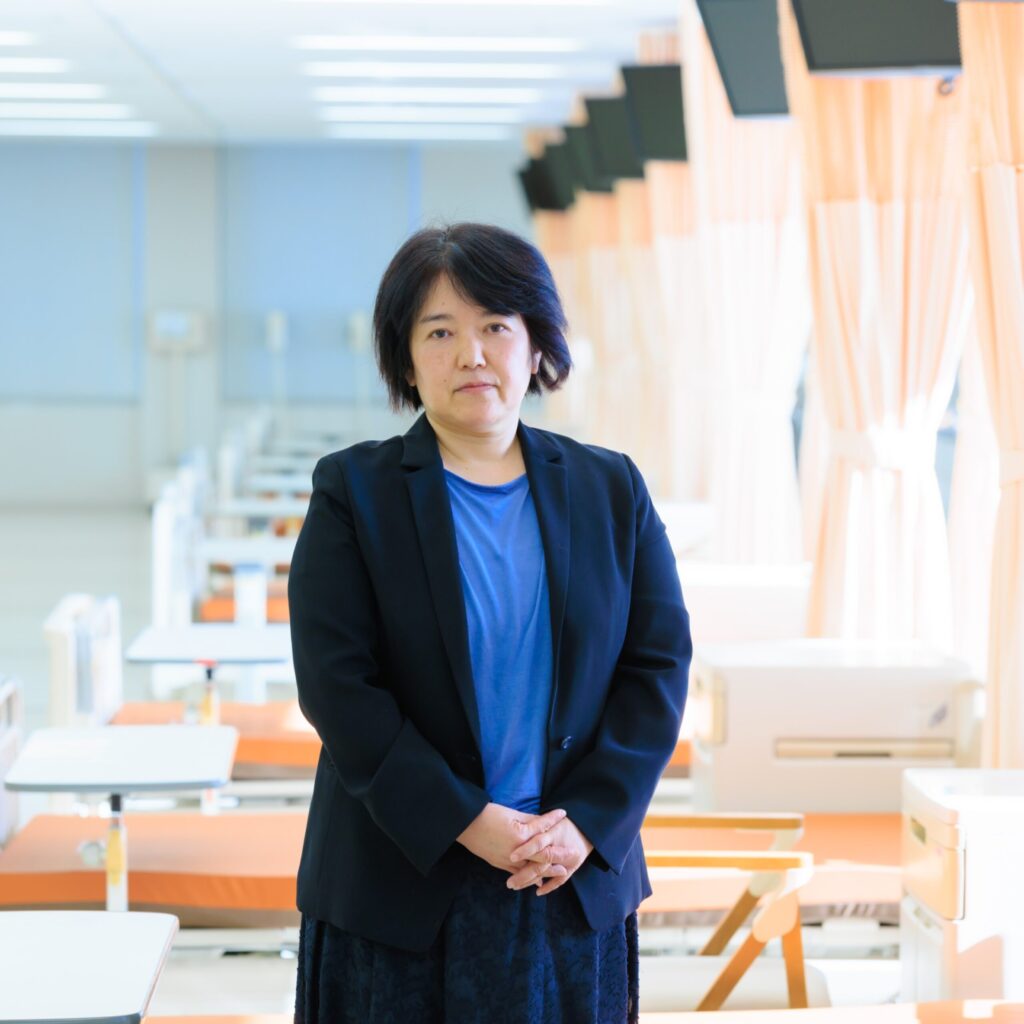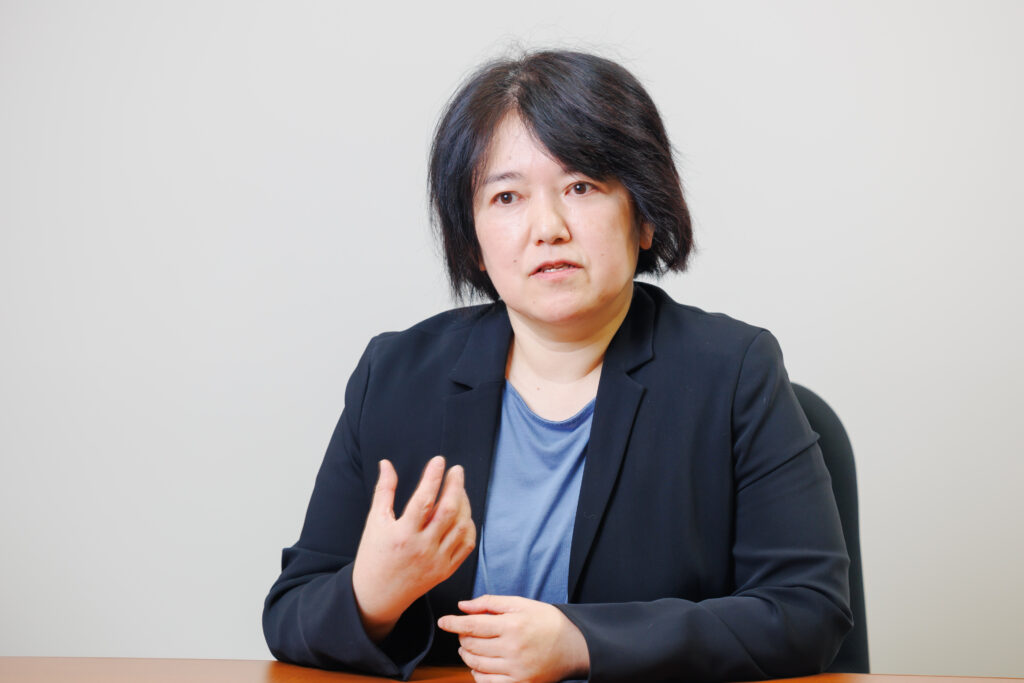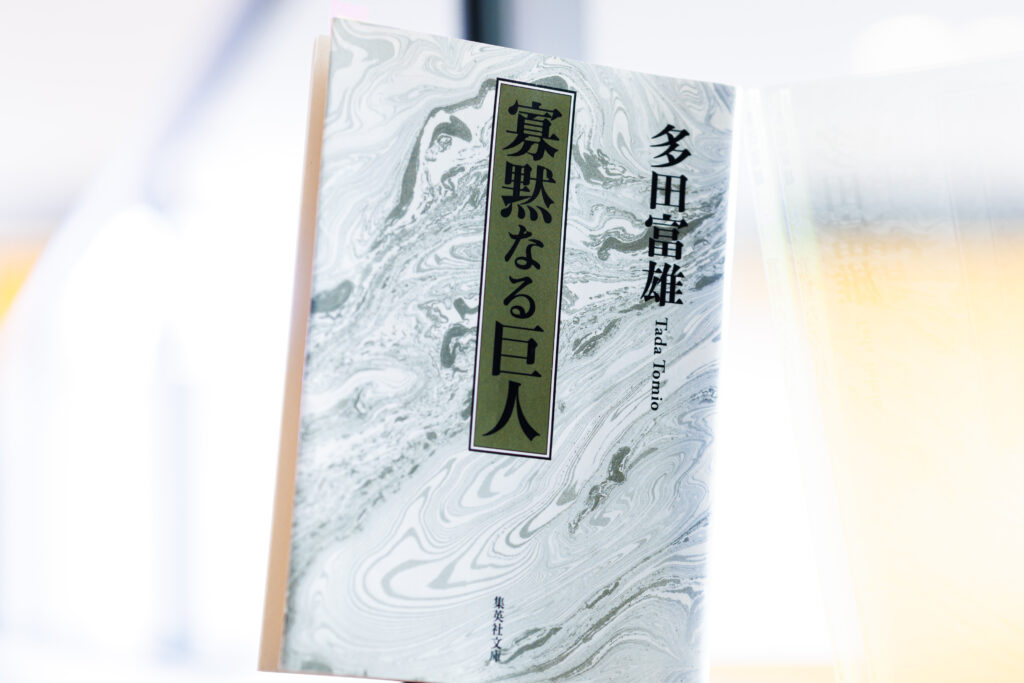
Associate Professor Yuka Funaki from the Department of Nursing undertakes research on fundamental nursing techniques. She talks about the importance of acquiring the ability to think and act independently instead of imitating others and having the desire to know more about one’s patients.
I began my career as a nurse. I came to teaching because as a high school student, my teacher recommended I attend a college where I could attain a teaching license and a nursing qualification. Currently, I undertake research on techniques in a field known as fundamental nursing.
To acquire nursing techniques, nursing students devote themselves to practice. However, when they start working in the field, things do not go smoothly. Of course, the university is different from the medical frontlines, and I myself embarked on this research because I thought, “Why can’t I perform this technique even though I had practiced so hard?”
This led me to focus on the ability to get along well with other people. I wondered if students who have the ability to seek answers from patients and medical staff to resolve issues are able to smoothly acquire nursing techniques. I approached my research from this angle.
In nursing, it is important to protect the patients’ esteem and respect them

I encourage students to use their own judgment and thinking when learning nursing techniques. I purposely let them undertake practical training through trial and error, without conducting any demonstration. This is because I want them to learn to think independently instead of imitating others.
For fundamental nursing, students have their first two week practical training at the beginning of their second year. I join the practical and at the end of each day, we discuss what the students did and what they were told by medical staff and patients. I also talk to the nurses of the training venue to strive and understand the students’ performance in the field.
During the practical, students take care of patients who have agreed to take part. The challenge is when they have to take care of patients with complex conditions. While it is important to actively gain a patient’s trust, recklessly doing so may end up with the student being rejected. Students who are able to empathize with patients and come to an understanding are those who can earn their trust.
When interacting with patients, it is important to protect their esteem and respect them. Your desire to know more about your patients can be felt by them. If you build a wall between you and your patients, they will feel it too. It is very difficult to gain their trust, and the only way is to think for yourself.
The ability to learn, think, and act independently is important in nursing
It is not an exaggeration to say that the study of nursing is social application itself. Today, the medical frontlines are changing rapidly. Technological progress is accelerating each day, and besides what one can do, it is extremely important to have the ability to learn, think, and act independently.
Therefore, we provide opportunities for mutual feedback between students during classes. Students are made to play the roles of both nurses and patients during classes, and those playing patients are asked about their thoughts on the care provided by those playing nurses, such as where and how they can do better. Things experienced from the perspectives of patients are critical for reflection on care that was given.
In the field, there will be many scenarios that cannot be handled by knowledge obtained through classes. It is necessary to discuss with patients each time to determine the required support. The main difference between classroom learning and practical training is the need to provide care while resolving doubts on one’s own, and this may be the most difficult part for students.
Of course, there must be a reason for the kind of nursing being provided. It is necessary to have nursing knowledge as well as an understanding of medical conditions. I hope students will acquire the ability to think about the best solutions that also take into consideration the patients’ lifestyles and the things that they had treasured.
The book I recommend
“Kamokunaru Kyojin”(A Reticent Giant)
by Tomio Tada, Shueisha

One day, the author suddenly suffered a stroke, and this is a record of his courageous fight against his condition, continuing to undergo rehabilitation and returning to his writing career after becoming half-paralyzed. This book can help one think about what it means to understand the feelings of someone with disabilities.
-
Yuka Funaki
- Associate Professor
Department of Nursing
Faculty of Human Sciences
- Associate Professor
-
Graduated from the Yogo Teacher (School Nurse) Training Division of Hirosaki University, and received her M.A. after completing the post-graduate program at the Division of Arts and Sciences, The Open University of Japan. Took on various positions—such as assistant professor at the Department of Nursing, Faculty of Human Sciences, Sophia University and lecturer at Kanto Gakuin University’s College of Nursing—before assuming her current position in 2018.
- Department of Nursing
Interviewed: December 2022